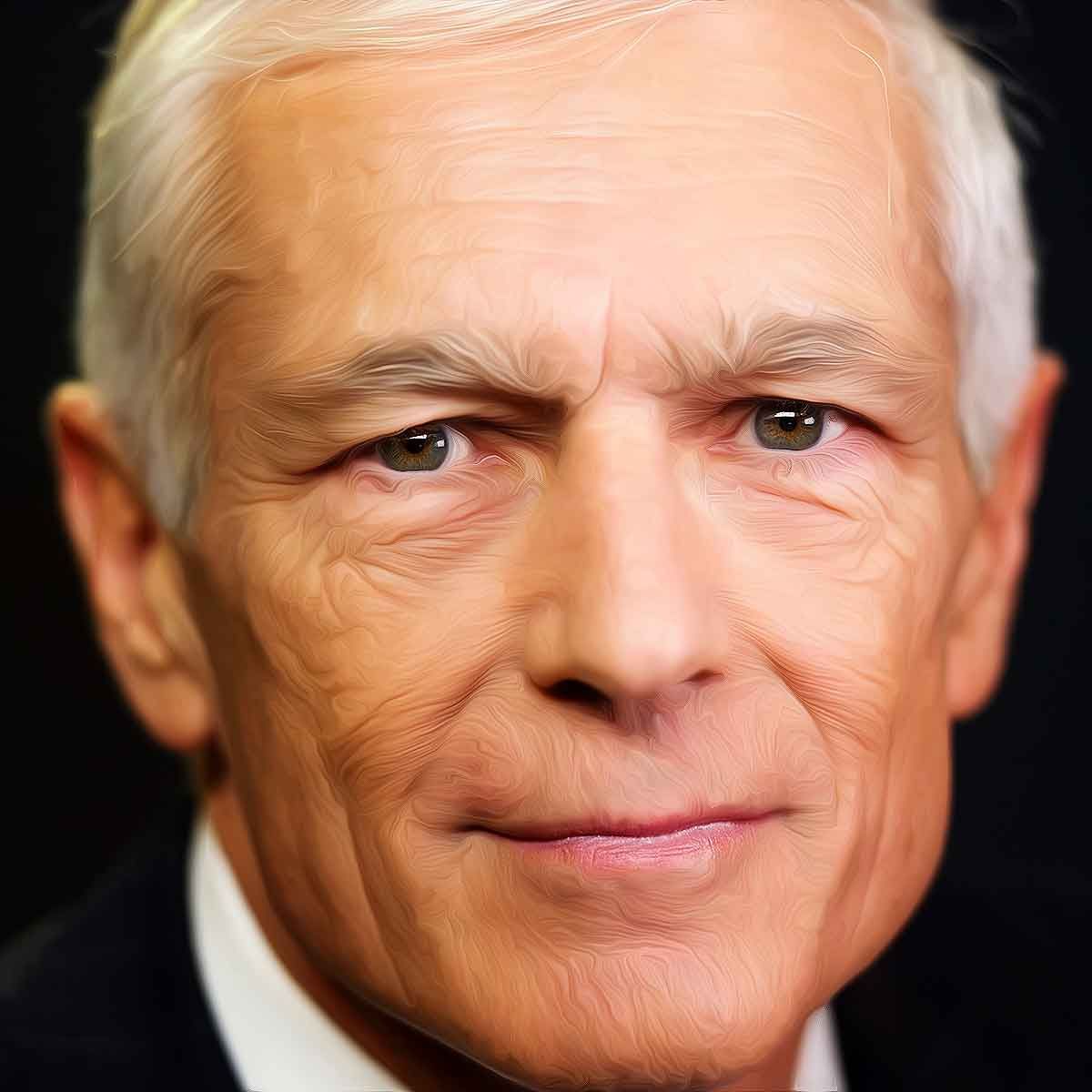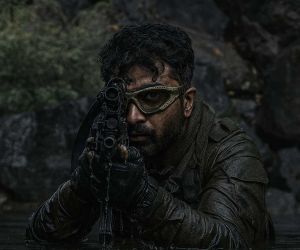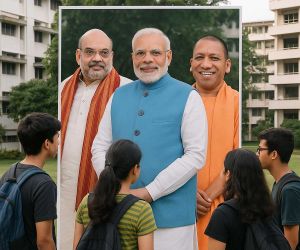MORE COVERAGE
Twitter Coverage
Satyaagrah
Written on
Satyaagrah
Written on
Satyaagrah
Written on
Satyaagrah
Written on
Satyaagrah
Written on
JOIN SATYAAGRAH SOCIAL MEDIA
"Greatest crime since World War II has been US foreign policy": Ex-US General Wesley Clark explains how he was told by one General after 9/11 of how USA planned to take out 7 (Iraq, Syria, Lebanon, Lybia, Somalia, Sudan, and Iran) countries in 5 years

A former commander of NATO’s forces in Europe, Clark claims he met a senior military officer in Washington in November 2001 who told him the Bush administration was planning to attack Iraq first before taking action against Syria, Lebanon, Libya, Iran, Somalia, and Sudan.
|
The general’s allegations surface in a new book, The Clark Critique, excerpts from which appear in the latest edition of the US magazine Newsweek.
Clark says after the 11 September 2001 attacks, many Bush administration officials seemed determined to move against Iraq, invoking the idea of state sponsorship of terrorism, “even though there was no evidence of Iraqi sponsorship of 9/11 whatsoever”.
Ousting Saddam Hussein promised concrete, visible action, the general writes, dismissing it as a “Cold War approach”.
Clark criticises the plan to attack the seven states, saying it targeted the wrong countries, ignored the “real sources of terrorists”, and failed to achieve “the greater force of international law” that would bring wider global support.
He also condemns George Bush’s notorious Axis of Evil speech made during his 2002 State of the Union address. “There were no obvious connections between Iraq, Iran, and North Korea,” says Clark.
“There was no evidence of Iraqi sponsorship of 9/11 whatsoever” - General Wesley Clark
Clark’s culprits
The former NATO commander acknowledges Iranian and Syrian support for resistance groups such as Lebanon’s Hizb Allah and the Palestinian movement Hamas.
“But neither Hezbollah [sic] nor Hamas were targeting Americans,” he writes. “Why not build international power against Al Qaeda?”
Instead, Clark points the finger at what he calls “the real sources of terrorists – US allies in the region like Egypt, Pakistan, and Saudi Arabia”.
Clark blames Egypt’s “repressive policies”, Pakistan’s “corruption and poverty, as well as Saudi Arabia’s “radical ideology and direct funding” for creating a pool of angry young men who became “terrorists”.
The recent Democrat Party convert says Bush should have adopted more preventive measures and targeted extremist leaders. “The way to beat terrorists was to take away their popular support,” adds Clark, though he offers little to suggest how this would be achieved.
But White House policy was quickly set in order to achieve particular goals, Clark writes, saying the US administration used the 9/11 attacks to address broader objectives in the Middle East.
Clark, who supervised NATO’s campaign to oust Serbia’s forces from Kosovo in 1999, also takes a swipe at the United States’ allies in Europe, which provided staging bases and planning headquarters for “radical” groups.
|
War record
The retired general last week declared his intention to win the Democrat nomination to challenge George Bush for the presidency in 2004.
Just days after entering the presidential race, Clark has raced ahead of the nine other Democratic contenders in the latest polls.
Many political observers have portrayed Clark as an anti-war candidate whose own war record – he was decorated after being shot and wounded while serving in Vietnam – means he cannot be accused of lacking courage or patriotism.
Clark has frequently criticised Washington’s policy towards Iraq.
He claimed previously that after the 9/11 attacks, he was pressed by the Bush administration to link the strikes directly to Iraq but refused – a claim the White House denies. However, once the war on Iraq began, he urged decisive action to achieve a rapid US victory.
Despite his anti-war stand on Iraq, the general has had a reputation for being belligerent. He was criticized during the Kosovo campaign for defending attacks on civilian Serbian targets, including the bombing of a television station that left about 20 journalists and other staff dead.
|
Retired Gen. Wesley Clark stresses global, and domestic threats to the future of the US at the OU Presidential Speakers Series dinner
Retired Gen. Wesley Clark presented “The Future of America” speech during the OU Presidential Speakers Series dinner Tuesday evening and discussed the current state of the U.S. and its future.
OU President Joseph Harroz Jr. opened the event, which was held in the Oklahoma Memorial Union, by discussing the state of the university and the progress that has been made. The class of 2026, he said, is the most diverse class in university history. Harroz said 25.4 percent of students enrolled in the freshmen class are first-generation students, a statistic he believes reflects the university’s mission to “change lives.”
Harroz discussed the university's strategic plan, Lead On, University, and how "The Future of America" talk will focus on Pillar 2, which aims to prepare students for a life of success.
"Every one of our students that graduates here, whatever their major, whatever they study, is going to be a leader in their communities," Harroz said. "How we prepare them, how we provide the ability in a deeply divided society to understand the other, whoever the other is, and work with them, and not dehumanize them and understand how they feel even if you don't agree with them is absolutely critical."
Harroz introduced Clark, saying he brings a unique perspective to complex issues that are transforming our world and impacting the course of our future.
"The country's in a difficult position," Clark said. "The world is at an inflection point."
Clark discussed current challenges across the globe, including the ongoing war in Ukraine and the intense political and economic climates in China, Pakistan, India and Eastern Europe.
"All over the world, democracies are threatened by the combination of the rise of autocracy, the difficulties of bureaucracy (and) the difficulties of economics,” Clark said. “How did we get here? How did this happen to us?"
Clark described moments in U.S. history over the past 75 years and how the U.S. was, at many times, “divided.” Clark explained how in 1991, Newt Gingrich, former speaker of the U.S House of Representatives, told him “politics are like war.” Clark disagreed, saying politics are not like war, but rather, they are a way to bring people and ideas together.
Clark said the U.S. was thriving until Sept. 11, 2001, and that this day changed America’s landscape.
"We became a country in fear," Clark said. "We responded in fear."
Clark said the U.S. government began planning an invasion of Iraq, but the reasoning was unclear as there was no evidence the country played a part in 9/11, and there was no change in the intelligence. The North Atlantic Treaty Organization commander at the time said nothing had changed. Clark said because the U.S. went to war with Iraq he decided to run for president. Clark won the Oklahoma primaries in the 2004 presidential election but later dropped out of the race.
In the years that followed, Clark said, relations between the U.S. and China, and between the U.S. and Russia, were complicated and uncertain. Former President Donald Trump's administration wanted to “beat” China, but it would be "like a dog chasing a car," Clark said.
"We got to find a way to live with China. And that's what this (presidential) administration is struggling with right now," Clark said. "We are in a period of trouble with China.”
Clark said the U.S. is in "the age of breaking" and the future is unclear. Americans don't know what is going to happen and they are unsure how to navigate through this period, Clark said.
When asked about his expectations for the future, Clark said the U.S. needs to protect civil service, avoid regulatory capture and improve financial reform. Clark also said voter intimidation and gerrymandering are serious issues in the U.S.
"There's no one in charge," Clark concluded his speech. "You need to be listening to your hearts. You need to be reading and studying and thinking because you are in charge. Not anybody else. If you let it go, it's gone. You will not recreate the United States of America if you let it go. … If you lose the voting and the democratic principles in the U.S. Constitution … in ten years, we may not have democracy in this country."
 Support Us
Support Us
Satyagraha was born from the heart of our land, with an undying aim to unveil the true essence of Bharat. It seeks to illuminate the hidden tales of our valiant freedom fighters and the rich chronicles that haven't yet sung their complete melody in the mainstream.
While platforms like NDTV and 'The Wire' effortlessly garner funds under the banner of safeguarding democracy, we at Satyagraha walk a different path. Our strength and resonance come from you. In this journey to weave a stronger Bharat, every little contribution amplifies our voice. Let's come together, contribute as you can, and champion the true spirit of our nation.
 |  |  |
| ICICI Bank of Satyaagrah | Razorpay Bank of Satyaagrah | PayPal Bank of Satyaagrah - For International Payments |
If all above doesn't work, then try the LINK below:
Please share the article on other platforms
DISCLAIMER: The author is solely responsible for the views expressed in this article. The author carries the responsibility for citing and/or licensing of images utilized within the text. The website also frequently uses non-commercial images for representational purposes only in line with the article. We are not responsible for the authenticity of such images. If some images have a copyright issue, we request the person/entity to contact us at This email address is being protected from spambots. You need JavaScript enabled to view it. and we will take the necessary actions to resolve the issue.
Related Articles
- India condemns Connecticut General Assembly for recognising declaration of Sikh Independence: 'Mischievous elements using Assembly for nefarious purposes, India and USA has no place for bigotry and hatred'
- "Things we can’t see affect our lives much more than we think": Money Heist - More than $200 billion may have been stolen from COVID-19 pandemic-relief programs, these Funds were meant for assisting small businesses hit by pandemic - federal watchdog
- EAM Jaishankar dismisses claims of institutional prejudice against minorities in India and critiques the UN, stating it 'lacks credibility and, to a large degree, effectiveness,' his US visit underscores India's pivotal role in reshaping global narratives
- "Titanic was called the Ship of Dreams, and it was. It really was": Deep-Sea Tragedy: The Catastrophic Implosion of Titan Submersible and the Lives Lost, it was on a mission to explore the Titanic, a ship that itself met a tragic end on its maiden voyage
- Another Indian student, doctoral candidate Sameer Kamath, found dead in Indiana - the sixth in a string of tragedies, two from Purdue, hinting at a deeper, somber story alongside Neel Acharya, Varun Chheda, Akul Dhawan, Jaahnavi Kandula, and Vivek Saini
- "Repatriation is not just return, it's restoration of dignity": India's stolen sculptures, scattered in global museums, are more than objects; they are silenced narratives, severed links to our past, a plea for justice, and a call to restore our heritage
- "We won’t be able to evacuate American citizens if Russia attacks Ukraine" says President Biden: US Govt authorizes departure of govt employees from Ukraine amid escalating tensions
- "That's the worst thing about dementia: it gets you every time": Old Joe Biden isn’t all there, confident and full of bravado, the senescent and dementia-ridden read off his teleprompter: “Let me start off with two words: made in America. Made in America”
- Facebook ‘fact-checking partner’ USA Today failed to ‘fact-check’ its own content, pulled 23 news fabricated stories from its website: Gabriela Miranda, a breaking news reporter who quit the publication is alleged to have exploited falsified sources
- "Never thought, Chilgoza talks": Thanks to the US hospitality, Pannun, the Khalistani maestro of threats, is back with another warning, this time, he plans to return the favor to India's alleged assassination attempt with a grand assault on the Parliament
- America which is suffering from 'mass shooting' and 'gun violence', supports ‘dara hua Musalman’ narrative in India even though its Islamic terrorists murdering Hindus in Kashmir: MEA slams the report, calls it ‘biased’
- "Harvard latest course: How to lose billionaires 101": As the Harvard university's stance on a pro-Hamas letter sparks debate, luminaries like Idan Ofer and Wexner Foundation cut all the ties, Harvard's once-untouchable prestige now faces serious scrutiny
- Human Rights lecturer USA to keep Racism alive and well: Indian-origin student Shaan Pritmani suspended for being assaulted by a white student at Coppell Middle School North in Texas, attacker identity not revealed
- 'In Trump I Trust': Donald Trump's Mar-a-Lago home raided, horde of angry supporters descends there in the hours following shock FBI raid of ex-president's Florida club, investigation focused on material that Trump took with him while leaving White House
- "Irony became the head that bit its tail and then there is no way out": Stanford University released a list of ‘harmful words’ and what to replace them with, also banning the word “American” on its websites because the term may be offensive

























